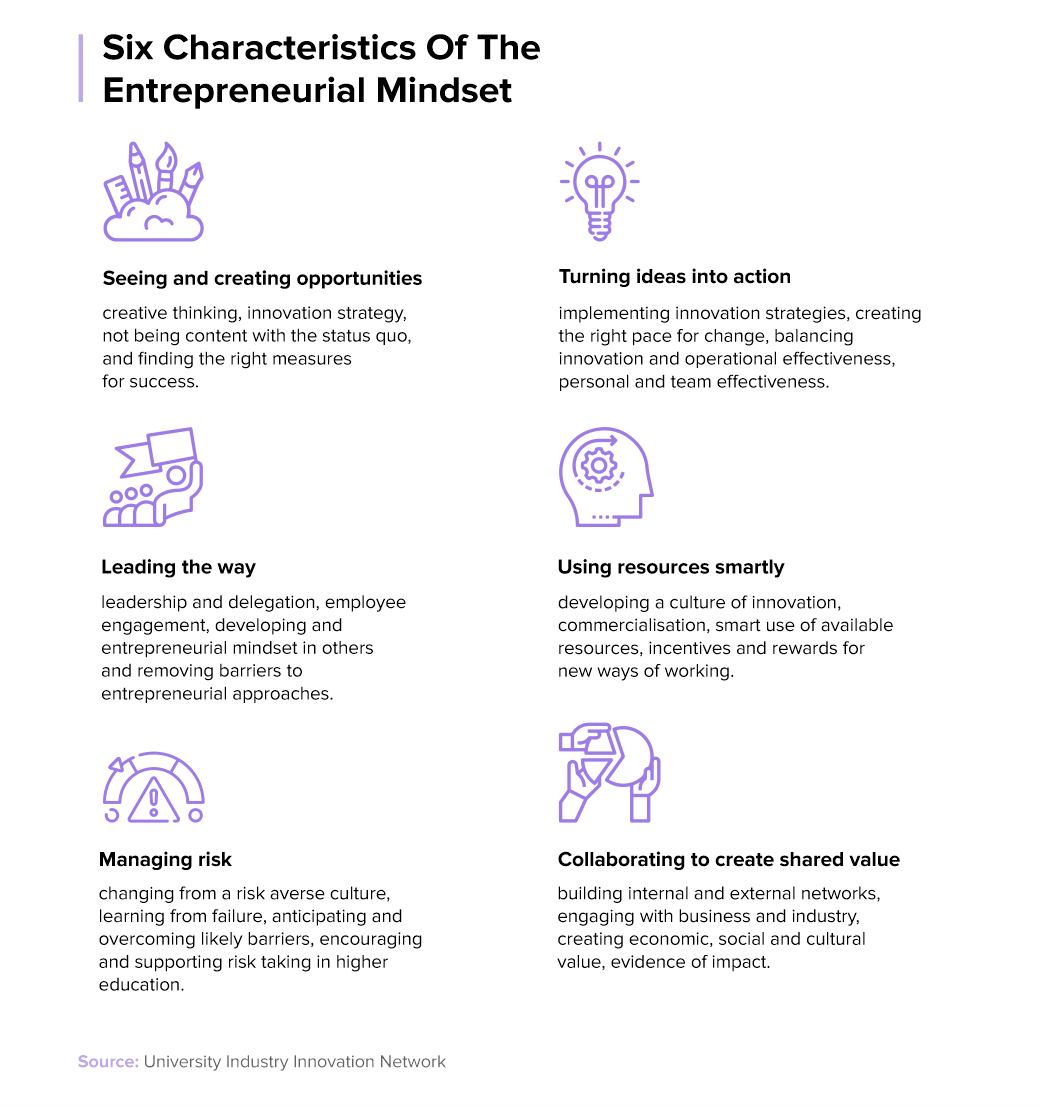Navigating the Entrepreneurial Journey: Resources and Strategies for Success

Entrepreneurship is more than just a buzzword; it’s a vital force in today’s economy. As individuals seek to innovate, solve problems, and create value, entrepreneurship plays a crucial role in driving economic growth and creating jobs. At its core, entrepreneurship involves identifying opportunities and taking calculated risks to pursue them. While many equate entrepreneurship with business ownership, the two are distinct. Business ownership often involves managing an established entity, whereas entrepreneurship is about creating something new from the ground up. An entrepreneurial mindset is essential for fostering innovation and adaptability. It encourages individuals to embrace challenges, view failures as learning opportunities, and remain persistent in the face of setbacks. This mindset is crucial for success, as it cultivates resilience and creativity—traits that are invaluable in the ever-evolving landscape of business. This blog will explore various resources and strategies that aspiring entrepreneurs can leverage to navigate their journey successfully.
Essential Resources for Aspiring Entrepreneurs
In today’s digital age, a wealth of information is at the fingertips of aspiring entrepreneurs. Platforms like YouTube have become treasure troves of knowledge, offering countless tutorials, interviews, and insights from successful entrepreneurs. These videos can provide inspiration and practical advice, making complex concepts more digestible. Quora, another invaluable resource, allows users to pose questions and receive answers from a community of experienced entrepreneurs and experts. This platform fosters a culture of learning and sharing, where aspiring entrepreneurs can gain insights into industry-specific challenges and solutions. Local libraries, often overlooked, are also a goldmine for entrepreneurial resources. They house a range of books covering various aspects of entrepreneurship, from marketing to finance. Additionally, many libraries offer free access to workshops and networking events, providing aspiring entrepreneurs with opportunities to connect with like-minded individuals. Online courses and MOOCs (Massive Open Online Courses) have revolutionized learning, offering flexible options for skill development. Platforms like Coursera, edX, and Udemy allow individuals to learn at their own pace, covering everything from business fundamentals to advanced entrepreneurship strategies. Networking within these online communities can lead to valuable connections and collaborations.

Recommended Books for Entrepreneurs
Books are a powerful tool for entrepreneurs, providing insights and frameworks that can guide their journeys. Key titles, such as The Four Hour Workweek by Tim Ferriss and The Lean Startup by Eric Ries, offer practical strategies for efficiency and innovation. Ferriss’s book challenges conventional notions of work-life balance and emphasizes the importance of automating and outsourcing tasks, while Ries’s approach focuses on the iterative process of building a startup. Continuous learning is vital for entrepreneurs. By reading widely, individuals can expand their knowledge and stay updated on industry trends. A tailored reading list can enhance personal growth and inform business strategies. Entrepreneurs should consider not just popular titles but also books that resonate with their specific interests and challenges. To apply lessons learned from these books, entrepreneurs can take actionable steps, such as implementing new strategies in their businesses or experimenting with techniques discussed within the texts. The key is to translate theoretical knowledge into practical application, fostering a cycle of learning and growth.
The Role of Mentorship
Mentorship can be a transformative aspect of the entrepreneurial journey. Having a mentor provides guidance, support, and invaluable networking opportunities. A good mentor can help navigate challenges, offering insights drawn from their own experiences. They can also connect mentees with resources and contacts that may otherwise remain out of reach. However, it’s essential to weigh the potential costs and benefits of mentorship. While some mentors offer their guidance for free, others may charge for their services. Entrepreneurs should seek mentors whose goals and values align with their own, ensuring a productive and mutually beneficial relationship. Balancing free mentorship with paid advisory services can also be advantageous. Free mentors may provide valuable insights, while paid advisors can offer specialized expertise and accountability. Aspiring entrepreneurs should assess their needs and resources to determine the best approach to mentorship.
Practical Experience: Learning by Doing
One of the most effective ways to learn about entrepreneurship is through practical experience. Hands-on involvement in real-world projects can provide insights that theoretical learning cannot replicate. Internships, freelance work, and part-time jobs in relevant fields can expose aspiring entrepreneurs to the intricacies of running a business. Successful entrepreneurs often share stories of learning through action. For instance, many started with small side projects, gradually refining their skills and understanding of the market. This iterative process of experimentation allows individuals to learn from both successes and failures, cultivating resilience and adaptability. Aspiring entrepreneurs should not shy away from testing their ideas, even if on a small scale. Launching a side project or a small business can provide invaluable experience and confidence. The lessons learned from these ventures can be instrumental in shaping future endeavors.
The Importance of Skill Development
Successful entrepreneurship requires a diverse skill set, encompassing both technical and soft skills. Key technical skills may include financial literacy, marketing, and operational management. Simultaneously, soft skills like communication, leadership, and problem-solving are crucial for building relationships and leading teams. Adaptability is another essential trait for entrepreneurs. The ability to pivot in response to changing market conditions or new information can be the difference between success and failure. Community building also plays a significant role; fostering relationships can open doors to new opportunities and collaborations. To acquire and enhance these skills, aspiring entrepreneurs should leverage various resources. Online courses, workshops, and networking events can provide avenues for professional development. Continuous learning and skill enhancement are vital in staying competitive and relevant in the fast-paced business landscape.
Financial Strategies for Entrepreneurs
Understanding financial strategies is crucial for aspiring entrepreneurs. Various funding options are available, from traditional loans to angel investments and crowdfunding. Each option comes with its own set of benefits and drawbacks, making it essential for entrepreneurs to evaluate what aligns best with their business models. Financial literacy is paramount in managing business funds effectively. Entrepreneurs should be well-versed in budgeting, cash flow management, and financial forecasting. This knowledge not only aids in day-to-day operations but also attracts potential investors by demonstrating a solid understanding of financial health. Creating a robust business plan is another key strategy for securing funding. A well-crafted plan outlines the business’s objectives, target market, and financial projections, offering potential investors a clear understanding of the venture’s viability. Resources for learning financial management and investment strategies are widely available, including online courses and financial literacy programs.
Online Courses and Programs
The rise of online entrepreneurship courses has made education more accessible than ever. These courses come in various formats, including video lectures, webinars, and interactive tutorials, catering to diverse learning preferences. Reputable platforms like Udemy, Coursera, and Seekho offer a plethora of courses tailored to aspiring entrepreneurs. These programs often feature practical applications and opportunities for peer interaction, enriching the learning experience. Choosing the right program involves assessing individual goals and preferred learning styles. Participating in online courses allows entrepreneurs to gain new skills and knowledge at their own pace. Furthermore, many programs encourage collaboration with peers, fostering a sense of community and support among aspiring entrepreneurs.
Conclusion: Taking the First Step
Embarking on the entrepreneurial journey is an exciting yet challenging endeavor. It’s essential to recognize that this journey is filled with learning opportunities, and taking action is crucial, regardless of one’s current status. Building a support network is vital for success. Connecting with other entrepreneurs, mentors, and industry professionals can provide encouragement and guidance. Remember, persistence and adaptability are often the keys to overcoming obstacles on this path. As you explore the resources and strategies discussed in this blog, consider taking that first step. Whether it’s enrolling in an online course, reaching out to a mentor, or launching a small project, each action brings you closer to your entrepreneurial goals. Embrace the journey, and let your entrepreneurial spirit guide you toward success.




Comments